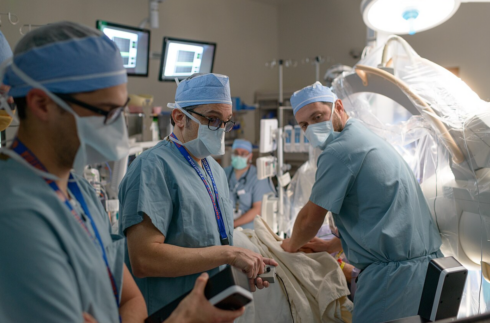CONCERNS over a flesh-eating bacteria from Japan reaching Europe have been overplayed in the media, according to a leading Spanish microbiologist.
Microbiology professor at the University of Navarra, Ignacio Lopez-Goñi, says the so-called Japanese bacteria is actually a streptococcus, which can be treated in the vast majority of infections by antibiotics.
He says that many bacteria coexist with humans without any problem, and are even part of our microbiome (the community of microorganisms that exists symbiotically in our body) and are beneficial.
READ MORE:
- Food bacteria warning in Spain: 70% of chicken sold by a major supermarket is contaminated with resistant strains, claim animal activists
- Higher temperatures bring foot bacteria warning from podiatrists in Spain

However, others can produce toxins that could be dangerous to our health.
This is the case in regard to Streptococcus pyogenes which has been grabbing the headlines.
Lopez-Goñi says it is a very common human pathogen that tends to colonise the upper respiratory tract or the upper layers of the skin.
It usually causes mild diseases such as pharyngitis, otitis, mastitis, impetigo, scarlet fever or rheumatic fever.
In more severe cases, it can lead to complications such as pneumonia and toxic shock syndrome.
It is transmitted in various ways, including through the respiratory route (droplets as in Covid-19) or by contact.
The vast majority of infections caused by it are mild and complications barely occur in 1% of cases- mainly in young children or patients with previous problems (cancer, diabetes, other infections, lung diseases or heart disease).
No commercial vaccine has yet been produced and treatment is usually based on antibiotics.
Crucially, no strain has been found resists to antibiotics, and in fact it is a microbe that is very sensitive to common drugs such as penicillin.
While news coverage has focused on Japan, Lopez-Goñi points out that the strain has been around for quite some time.
It’s name (M1UK) is due to it first being located in the he United Kingdom, where there has been an increase in cases of Streptococcus pyogenes infections since 2014.
Since 2020 it has also been the dominant strain in the United Kingdom, Holland, Australia, Canada and the United States.
The variant has been detected in Spain, but it does not seem to dominate over other strains. Certain factors, such as the fact that it is not a notifiable disease, makes it difficult to monitor the epidemiology of the disease.
It is more virulent than other strains but the bacteria has a low mortality and a reduced complication rate.
In the most severe instances toxic shock can occur leading to multi-organ failure, or necrotising fasciitis (infection of the subcutaneous tissue, which has created the ‘carnivorous’ label used by certain media).
It is only in these tiny number of severe cases that infections reach a high mortality rate(around 30%).
This is not the case in general with the vast majority of infections classified as mild.
Click here to read more Health News from The Olive Press.








